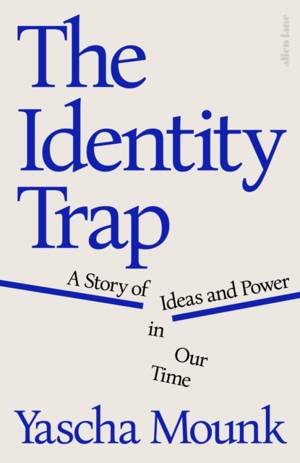
- Afhalen na 1 uur in een winkel met voorraad
- Gratis thuislevering in België vanaf € 30
- Ruim aanbod met 7 miljoen producten
- Afhalen na 1 uur in een winkel met voorraad
- Gratis thuislevering in België vanaf € 30
- Ruim aanbod met 7 miljoen producten
Zoeken
The Identity Trap: A Story of Ideas and Power in Our Time
A Story of Ideas and Power in Our Time
Yascha Mounk
Hardcover | Engels
€ 36,95
+ 73 punten
Omschrijving
The origins, consequences and limitations of an ideology that has quickly become highly influential around the world.
For much of their history, societies have violently oppressed ethnic, religious and sexual minorities. It is no surprise then that many who passionately believe in social justice have come to believe that members of marginalized groups need to take pride in their identity if they are to resist injustice.
But over the past decades, a healthy appreciation for the culture and heritage of minorities has transformed into an obsession with group identity in all its forms. A new ideology - which Yascha Mounk terms the 'identity synthesis' - seeks to put each citizen's matrix of identities at the heart of social, cultural and political life. This, he argues, is The Identity Trap.
Mounk traces the intellectual origin of these ideas. He tells the story of how they were able to win tremendous power over the past decade. And he makes a nuanced case why their application to areas from education to public policy is proving to be deeply counterproductive. In his passionate plea for universalism and humanism, he argues that the proponents of identitarian ideas will, though they may be full of good intentions, make it harder to achieve progress towards genuine equality.
For much of their history, societies have violently oppressed ethnic, religious and sexual minorities. It is no surprise then that many who passionately believe in social justice have come to believe that members of marginalized groups need to take pride in their identity if they are to resist injustice.
But over the past decades, a healthy appreciation for the culture and heritage of minorities has transformed into an obsession with group identity in all its forms. A new ideology - which Yascha Mounk terms the 'identity synthesis' - seeks to put each citizen's matrix of identities at the heart of social, cultural and political life. This, he argues, is The Identity Trap.
Mounk traces the intellectual origin of these ideas. He tells the story of how they were able to win tremendous power over the past decade. And he makes a nuanced case why their application to areas from education to public policy is proving to be deeply counterproductive. In his passionate plea for universalism and humanism, he argues that the proponents of identitarian ideas will, though they may be full of good intentions, make it harder to achieve progress towards genuine equality.
Specificaties
Betrokkenen
- Auteur(s):
- Uitgeverij:
Inhoud
- Aantal bladzijden:
- 368
- Taal:
- Engels
Eigenschappen
- Productcode (EAN):
- 9780241638293
- Verschijningsdatum:
- 21/09/2023
- Uitvoering:
- Hardcover
- Afmetingen:
- 156 mm x 240 mm
- Gewicht:
- 642 g

Alleen bij Standaard Boekhandel
+ 73 punten op je klantenkaart van Standaard Boekhandel
Beoordelingen
We publiceren alleen reviews die voldoen aan de voorwaarden voor reviews. Bekijk onze voorwaarden voor reviews.








